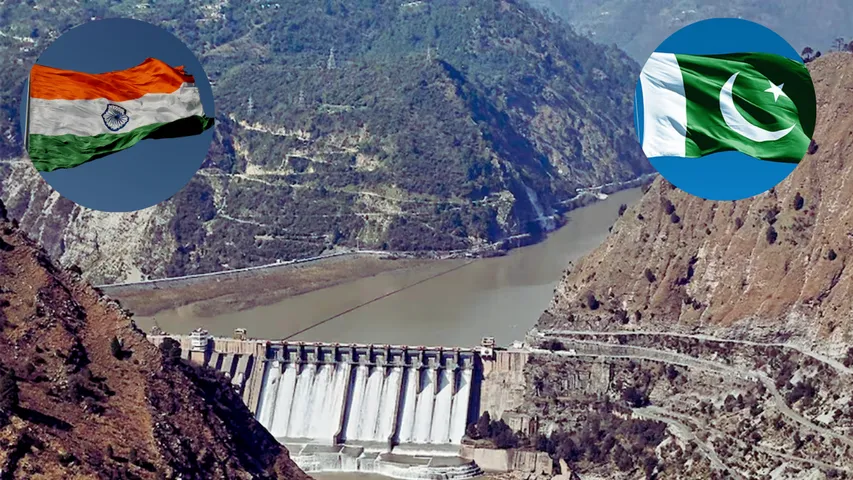By Urban Acres | National Affairs & Water Security Desk | April 24, 2025
In a bold and historic step, the Government of India has formally suspended the Indus Waters Treaty (IWT) — a move that signals a turning point in the country’s approach to national security, regional diplomacy, and long-term water sovereignty. Triggered by the recent terror attack in Pahalgam that took the lives of 26 people, this decision is not just a reaction to tragedy — it is a strategic reset rooted in India’s evolving geopolitical reality and climate vulnerabilities.
A Treaty That Outlived Its Utility
Signed in 1960 under World Bank mediation, the IWT divided the six rivers of the Indus system between India and Pakistan. While India was allocated the eastern rivers (Ravi, Beas, Sutlej), Pakistan received control over the western rivers (Indus, Jhelum, Chenab) — amounting to almost 80% of the total flow. For decades, India honoured this agreement, even through wars and border tensions. But in doing so, it also restricted itself from fully utilizing its fair share of the waters — using just about 20% of the total system and leaving critical irrigation, hydropower, and storage potential untapped in Jammu & Kashmir, Ladakh, Himachal Pradesh, Punjab, and Rajasthan.
Why This Matters: India First, Water First
With the IWT suspended, India now has the opportunity — and the responsibility — to assert its rights and restructure its approach to the Indus basin. This is not an act of aggression; it is a long-overdue act of assertion.
- Reclaiming Hydropower Sovereignty
India can fast-track major hydroelectric projects like:
- Tulbul Navigation Project (Wullar Barrage)
- Ratle and Sawalkote on Chenab
- Kishanganga-II on Jhelum
These projects were stalled for years due to Pakistan’s objections. Now, with treaty restrictions lifted, India can generate renewable energy, stabilise grid systems in the North, and reduce dependence on imported fossil fuels.
- Irrigating the North, Feeding the Nation
The IWT allowed India to irrigate up to 13.4 lakh acres in J&K and Ladakh — yet only 6.42 lakh acres are covered today. The suspension enables full-scale irrigation expansion, crucial for agricultural security in water-scarce northern states and border villages.
- Strengthening Strategic Control
India is the upper riparian nation on all Indus system rivers. This geographic advantage now becomes a strategic asset, allowing controlled releases, river management during floods, and water-level regulation in a way that balances ecological sustainability with national interest.
Climate Resilience in a Fragile Future
Climate change is already altering the Himalayan hydrology. Glaciers are retreating, monsoons are shifting, and river flows are becoming erratic. In this new climate reality, India cannot afford outdated diplomatic handcuffs on water management.
Suspending the IWT clears the path to:
- Build high-altitude storage systems for droughts and floods
- Link rivers for efficient water distribution
- Integrate the Indus basin into national climate adaptation plans
India must now turn its focus to sustainable infrastructure, early warning systems, and eco-sensitive engineering to harness the Indus system responsibly and resiliently.
A Cautious Yet Confident Path Forward
India’s decision is not a call for confrontation but a call for correction. Any future renegotiation with Pakistan — or regional frameworks with neighbours like Nepal and Bhutan — must reflect:
- India’s rising population and water demand
- Security realities on the western border
- The scientific imperatives of climate risk management
This is not 1960. India’s global stature, economic scale, and strategic challenges have grown exponentially. Our water policy must now grow with it.
India Has Waited Long Enough
The suspension of the Indus Waters Treaty is not an act of revenge. It is a statement of vision. A statement that India will no longer sacrifice its rights, its resources, or its resilience for one-sided diplomacy.
As we mourn those lost in Pahalgam, we also rise — with a clearer, firmer resolve to build a secure, self-reliant, and sustainable India, one river at a time.
Also Read – https://urbanacres.in/india-suspends-indus-waters-treaty/
Indus Waters Treaty Suspended: India Reclaims Its Rivers for Security, Sovereignty, and Sustainability


